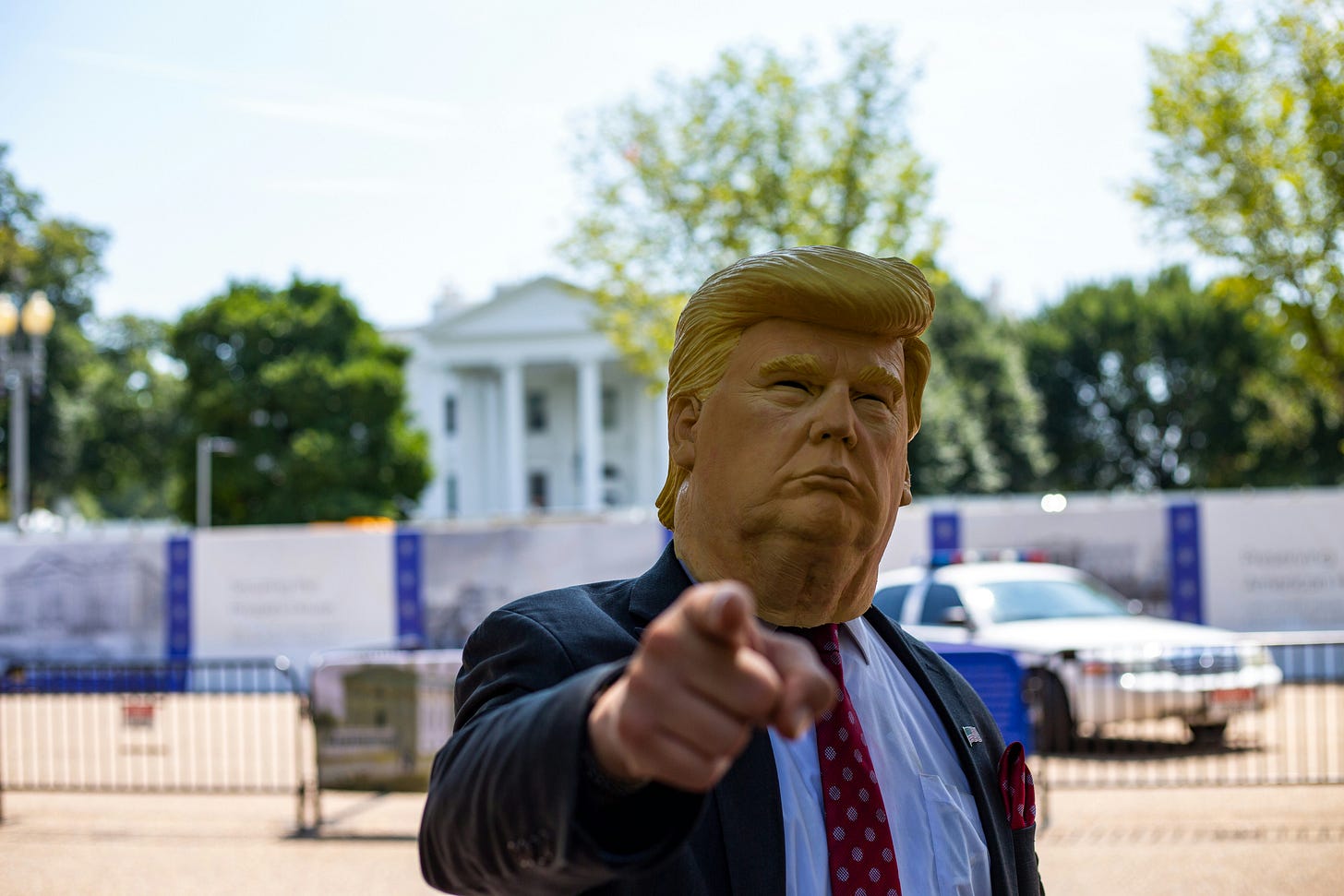Muslim American Scholar Warns of Challenges Under Second Trump Presidency
Prominent Muslim American scholar and activist Omar Suleiman has voiced concerns about the potential implications of Donald Trump's return to the White House for the Muslim community in the United States. In a recent interview with Anadolu Agency in Istanbul, Suleiman highlighted the unpredictability of Trump's leadership and the challenges that may arise from his new Cabinet appointments.Suleiman's Apprehension Over Trump's Cabinet Picks"The thing about Donald Trump is that he's predictably unpredictable," Suleiman told Anadolu Agency, expressing worry over Trump's recent Cabinet selections. He described the new appointments as "a worse Cabinet than his first," warning that it "promises only further destruction." Suleiman pointed to the hawkish tendencies of the new team members and the potential for increased challenges facing the Muslim community.The scholar emphasized the need for vigilance and resilience in the face of these developments. "We have to be ready for them. We can't buckle from fear," Suleiman urged, highlighting the potential domestic and international repercussions of these appointments.Historical Context: The "Muslim Ban" and Its Lasting ImpactDuring Trump's first term, his administration implemented the controversial "Muslim ban," which barred entry to the United States for nationals of several predominantly Muslim countries. This policy, combined with Trump's rhetoric, left deep scars within the Muslim American community. The memory of these actions fuels current concerns about what a second Trump presidency might entail.Shifting Political Allegiances Among Muslim AmericansThe 2024 election cycle has seen unexpected shifts in political allegiances within the Muslim American community. Surprisingly, some Muslim leaders in Michigan endorsed Trump before the November 5 elections, sparking discussions about political loyalties within the community.Trump's campaign promises to bring peace to the Middle East, particularly regarding the situation in Gaza, have been met with skepticism by Suleiman. "He has promised to end the war by letting (Israeli Prime Minister Benjamin) Netanyahu finish them all (Palestinians). So, if you listen to Donald Trump speak, he uses the word 'Palestinian' as a pejorative, as an insult," Suleiman stated.The scholar also pointed out Trump's criticism of the Biden administration for being slow in delivering weapons to Israel, suggesting that this indicates Trump's inclination to give Netanyahu a free hand in the conflict.Disillusionment with Major Parties and the Rise of Third-Party SupportThe 2024 election has been characterized by growing disillusionment among Muslim Americans with both major political parties. Suleiman noted that many Muslim scholars in the U.S. viewed the election as a choice between "two monstrous evils," leading to increased support for third-party candidates.This sentiment was reflected in the strong showing of Green Party candidate Jill Stein among Muslim voters. According to an exit poll conducted by the Council on American-Islamic Relations (CAIR), 53.2% of Muslim voters supported Stein, while Trump received 21.4% of the Muslim vote, and Vice President Kamala Harris secured 20.3%.The support for Stein was even more pronounced in Michigan, where 59% of 502 Muslim respondents backed her, compared to 22% for Trump and 14% for Harris.Suleiman attributed this shift to a growing sense of self-worth within the Muslim community. "I think that the Muslim community has developed a sense of self-worth and security to no longer allow fearmongering to cause it to vote for those who are active in the worst human rights atrocity in our lifetimes," he said.Increased Political Engagement Among Muslim AmericansDespite underrepresentation in government leadership and policy, Suleiman noted that Muslim Americans are demonstrating increased political engagement and influence. He expressed hope that this growing political clout, particularly in states like Michigan, would force parties and candidates to take the community's concerns more seriously in the future.The scholar also highlighted the impact of the Gaza conflict in energizing political participation within the Muslim community. "Muslims were disillusioned from the two major political parties, but Muslims were not disillusioned from the political process," Suleiman observed, suggesting that Muslim voter turnout may have increased in the recent election.Looking Ahead: Challenges and OpportunitiesAs the Muslim American community navigates the political landscape under a second Trump presidency, it faces both challenges and opportunities. The community's growing political engagement and willingness to support third-party candidates signal a shift in how Muslim Americans approach the political process.Suleiman concluded by noting that Muslims are likely to engage in the political process "more meaningfully now and not within the confines of the two major political platforms." This evolving approach to political participation could have significant implications for future elections and policy-making in the United States.As the situation continues to develop, the Muslim American community's response to the challenges and opportunities presented by a second Trump presidency will be crucial in shaping their political future and influence in the United States



